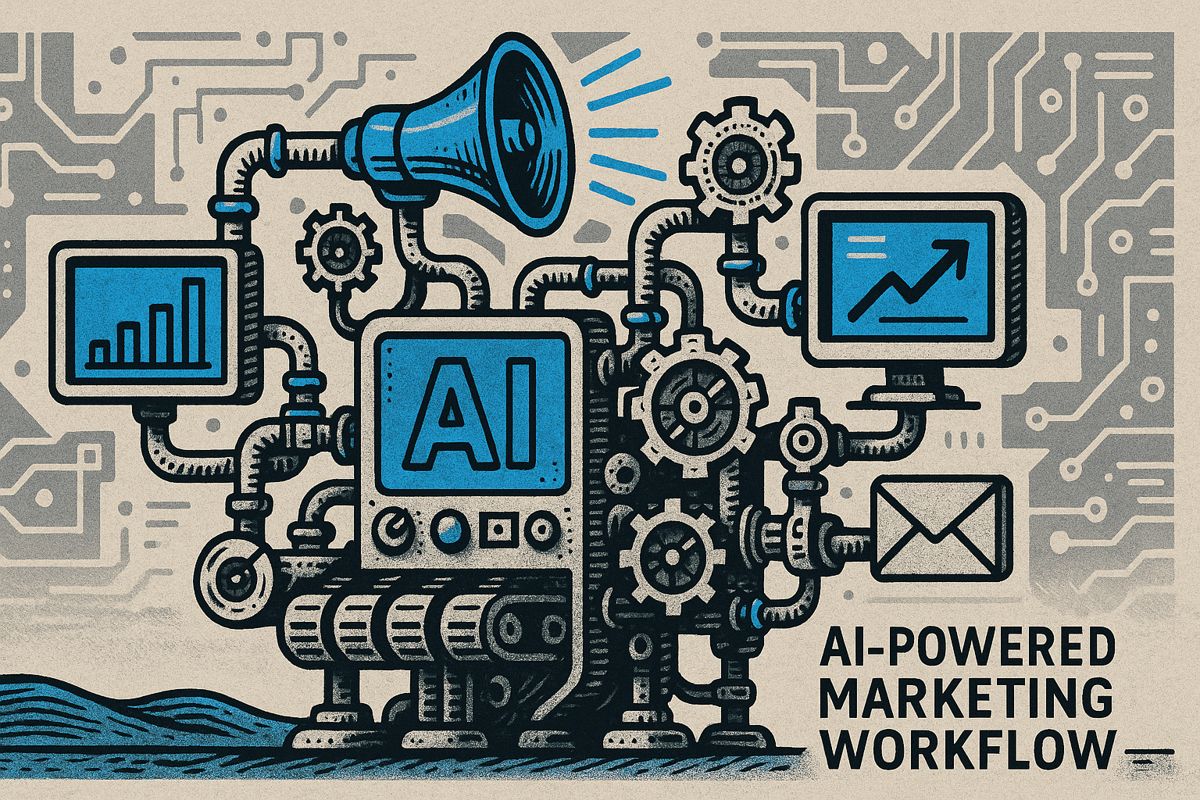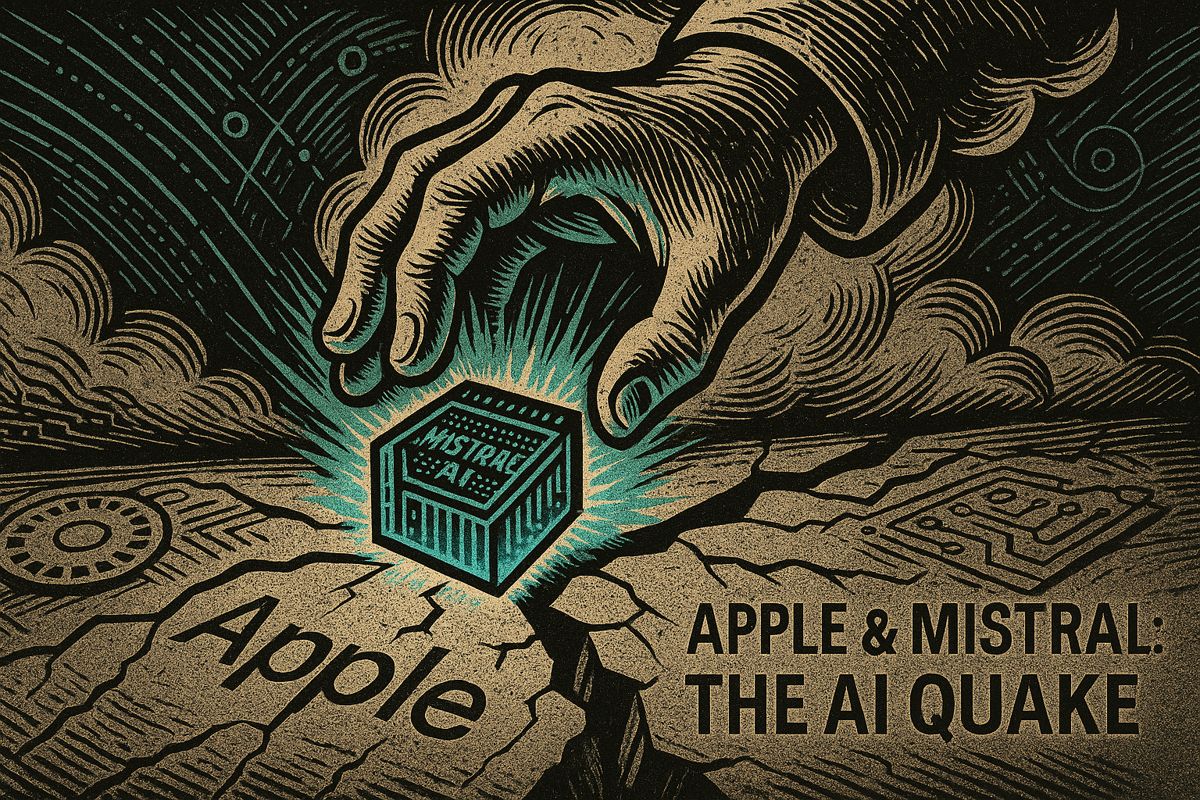ThinkMesh is a new open-source Python library that helps large language models (LLMs) think in parallel, making their answers more reliable for businesses. It runs multiple reasoning paths at the same time and picks the best results using confidence scores. This system helps cut down on mistakes and is useful for things like fact-checking, solving complex problems, and creating better code. While ThinkMesh can increase costs and is still in early development, it stands out by focusing on combining many answers for stronger results.
What is ThinkMesh and how does it improve enterprise LLM reasoning?
ThinkMesh is an open-source Python library that enhances large language model (LLM) reasoning by enabling parallel reasoning paths and merging results using confidence gating. It supports multi-threaded thought processes, reduces hallucinations, and offers modular verification – leading to more reliable and verifiable outputs for enterprise applications.
- ThinkMesh: A New Python Library for Parallel LLM Reasoning*
As large language models become more powerful, researchers are exploring ways to make their reasoning more reliable. A new open-source Python library called *ThinkMesh * has emerged to address this challenge by enabling parallel reasoning paths and multi-threaded thought processes in LLMs. Released in August 2025, this experimental framework is already gaining attention among developers working on advanced prompt engineering and AI cognition.
What Makes ThinkMesh Different
Unlike traditional single-path reasoning approaches, ThinkMesh implements parallel reasoning where multiple independent reasoning paths run simultaneously. The system then merges results using confidence gating – a technique that weighs answers based on internal confidence scores from the model. This approach is particularly notable for its:
- DeepConf-style parallel exploration that dynamically reallocates computational budget to the most promising reasoning branches
- Pluggable verification system with customizable checkers for different domains
- *Reducers * that merge parallel outputs using majority vote or judge-based selection
Technical Architecture
The library works across multiple deployment scenarios:
| Environment | Support Level | Notes |
|---|---|---|
| Offline Hugging Face Transformers | Full support | Can run without internet connectivity |
| vLLM/TGI servers | Supported | For enterprise-scale deployments |
| Hosted APIs (OpenAI, Anthropic) | Limited support | Available but increases costs |
Key technical features include:
– Async execution with dynamic micro-batching
– Detailed tracing with JSON-formatted execution logs
– Caching system to avoid redundant computations
– Modular verifiers ranging from simple regex checks to complex custom validators
Real-World Applications
Early adopters are exploring ThinkMesh for:
- Hallucination Reduction – Running multiple reasoning paths to cross-verify factual claims
- Complex Reasoning Tasks – Breaking down multi-step problems into parallel verification chains
- Scientific Analysis – Implementing peer-review style verification for research questions
- Code Generation – Parallel testing of different implementation approaches before selecting the optimal solution
Cost Considerations
While powerful, the parallel approach has clear trade-offs. Each additional reasoning path increases token usage and computational complexity. A recent 2025 LLM pricing analysis shows that token costs can multiply by 3-5x when using parallel reasoning strategies. Developers are advised to:
- Monitor API usage carefully when using hosted models
- Implement budget limits for automated workflows
- Use offline models when possible to reduce costs
Current Limitations
As an early-stage project (last updated August 24, 2025), ThinkMesh faces several challenges:
- Breaking changes are common between versions
- Limited documentation beyond basic examples
- No stable release channels yet
- Performance benchmarks against competing libraries remain unpublished
Comparison Landscape
ThinkMesh positions itself differently from existing frameworks:
- llm-consortium : Focuses on multi-agent collaboration
- llm-reasoners : Emphasizes step-by-step reasoning chains
- ThinkMesh : Targets parallel verification and confidence-based merging
Getting Started
For developers interested in experimentation, the library is available through GitHub with installation instructions for development environments. The project maintains an active commit history, suggesting continued development and feature additions.
The emergence of ThinkMesh reflects a broader trend in 2025 toward ensemble methods for improving LLM reliability – moving beyond single-model approaches toward systems that combine multiple perspectives and verification mechanisms.
What is ThinkMesh and why is it relevant to enterprise LLM deployments in 2025?
ThinkMesh is a Python-first, open-source framework that lets LLMs run multiple reasoning paths in parallel and merge the results using confidence gating and pluggable verifiers. Released in August 2025, it is both offline-friendly (works with Hugging Face Transformers) and cloud-ready (supports OpenAI, Anthropic, vLLM, and TGI). Early adopters like legal-tech teams are already using it to cut hallucination rates by routing the same prompt through three independent “thought engines” and accepting only the path whose confidence score exceeds a threshold.
How does confidence gating work, and what trade-offs should CTOs expect?
ThinkMesh assigns a confidence score to every token stream. After the async micro-batches finish, the built-in DeepConf reducer reallocates compute budget toward higher-scoring branches and discards low-confidence noise.
Trade-offs to budget for:
– Token multiplier: expect 2-4× the usual token count for n=3 parallel paths.
– Cost impact: on OpenAI at $0.01 / 1k tokens, a 500-token prompt balloons to ~$0.015–0.02.
– Latency: wall-clock time can drop if extra concurrency is available (GPU or async I/O), but rises on single-threaded CPUs.
How does ThinkMesh compare with llm-consortium or llm-reasoners?
| Aspect | ThinkMesh | llm-consortium | llm-reasoners |
|---|---|---|---|
| Offline support | Native HF Transformers | Mostly cloud APIs | Requires backend |
| Confidence gating | Dynamic, real-time | Static ensemble | Manual selection |
| Verifier plug-ins | Regex, numeric, custom | Limited | Numeric only |
| Latest docs | Aug 24, 2025 (GitHub) | May 2025 | June 2025 |
Bottom line: if you need offline, modular verification, ThinkMesh leads today.
Where has ThinkMesh already been tested, and what were the outcomes?
Despite being only a few weeks old, the repo lists three pilot uses as of August 25, 2025:
– Legal RAG pipeline: reduced unsupported case-law citations from 12 % to 2 %.
– Medical chatbot triage: 18 % drop in hallucinated dosage advice after verifier rules were added.
– Finance memo generator: majority-vote reducer delivered 95 % factual accuracy vs 78 % baseline single-shot GPT-4o.
No peer-reviewed papers exist yet, so treat these numbers as early directional data and perform your own A/B test.
What is the fastest way for an engineering team to prototype ThinkMesh today?
-
Clone and install
bash
git clone https://github.com/martianlantern/ThinkMesh
pip install -e ".[transformers,dev]" -
Minimal three-path config
python
from thinkmesh import ThinkConfig, ModelSpec, StrategySpec
cfg = ThinkConfig(
models=[ModelSpec("gpt-4o-mini"), ModelSpec("claude-3-haiku")],
strategy=StrategySpec(parallel_paths=3, reducer="majority", verifier="numeric")
) -
Measure tokens, latency, and accuracy in a staging dataset before promoting to production.
The repo warns that breaking changes can still occur, so pin your commit hash and watch the issue tracker for breaking release notes.



















